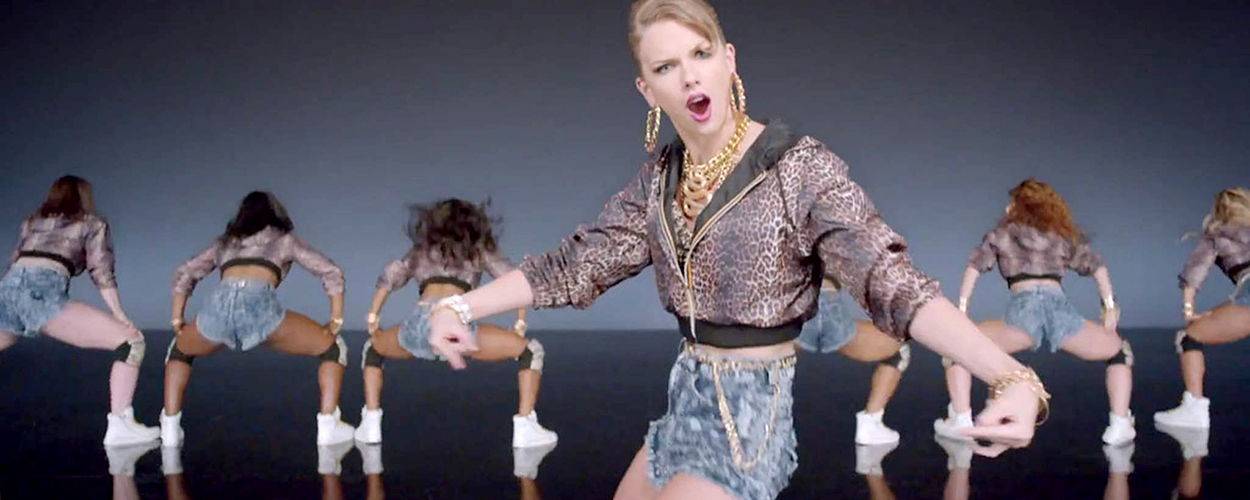This website uses cookies so that we can provide you with the best user experience possible. Cookie information is stored in your browser and performs functions such as recognising you when you return to our website and helping our team to understand which sections of the website you find most interesting and useful.
Artist News Business News Labels & Publishers Legal Top Stories
Taylor Swift’s reps confident revived Shake It Off lyric-theft case can be defeated
By Chris Cooke | Published on Wednesday 30 October 2019

The players were playing and the haters were hating yesterday following the news that the Ninth Circuit appeals court in the US had revived a lyric-theft lawsuit involving Taylor Swift’s ‘Shake It Off’. But who are the players and who are the haters? One side insisted that this was a David v Goliath battle that would benefit creators everywhere. The other side countered that the whole thing was a simple cynical money grab that will ultimately fail. Good times.
Sean Hall and Nathan Butler accuse Swift and her songwriting pals of ripping off their 2001 song ‘Playas Gon Play’ on her 2014 hit ‘Shake It Off’. That claim is based on the famous ‘Shake It Off’ lyric “Cos the players gonna play, play, play, play, play/And the haters gonna hate, hate, hate, hate, hate”. Hall and Butler reckon that’s an unapproved rework of their 2001 lyric “The playas gon play/Them haters gonna hate”. To that end, the songwriting duo sued.
However, early last year a district court judge dismissed the case, arguing that the line “The playas gon play/Them haters gonna hate” was simply too “banal” to enjoy copyright protection. Hall and Butler then appealed that decision, arguing that it wasn’t for a district court judge to make such an artistic judgement, and that the substance – or not – of their lyric should have been decided upon by a jury after full arguments from both sides in a courtroom.
The Ninth Circuit appeals court has now endorsed that viewpoint, citing legal precedents set in cases as far back as 1903. To that end the Ninth Circuit reversed the original decision to dismiss the case, meaning the whole matter will now have to return to the district court for further consideration.
Welcoming that ruling, Hall said in a statement: “We are happy the court unanimously sided with us. We simply refuse to sit still and have our creative work be culturally appropriated as if it never existed. This case is giving voice to all of those creatives who can’t afford to stand up and protect their work in the face of well-financed Goliaths”.
But a rep for Team Swift reckoned that Hall’s statement misrepresented what actually happened in the Ninth Circuit. After all, the appeals court only considered whether the district court judge was allowed to make a judgement on the artistic substance of Hall and Butler’s lyric, not whether or not he made the right judgement.
“Mr Hall is incorrect”, Swift’s rep told reporters. “The court did not unanimously side in their favour, the court sent the case back to the lower court for further determination. These men are not the originators, or creators, of the common phrases ‘Players’ or ‘Haters’ or combinations of them. They did not invent these common phrases nor are they the first to use them in a song. We are confident the true writers of ‘Shake It Off’ will prevail again”.
As for positioning this lawsuit as a battle between grassroots creators and the pop music machine, Swift’s rep added: “Their claim is not a crusade for all creatives, it is a crusade for Mr Hall’s bank account”.
Still, the law firm repping Hall and Butler – Gerard Fox Law – continued to insist that the case should be of interest to the wider music community. It said in a statement: “We are pleased with the ruling and believe it is one the entire industry should review. Gerard Fox Law is always eager to protect songwriters. Our founding partner, Gerard Fox, and our Appellate & Critical Motions Chair, Marina Bogorad, will continue their fight to protect the songwriters’ rights once the case comes down to the district court”.
Looking to the next phase of this legal battle, the there mentioned Bogorad added: “We anticipate that there will be more attempts to get rid of the case, and we intend to keep going to get our clients their day in court”.
And so the big ‘Shake It Off’ lyric-theft case rolls on. Expect plenty for players playing and haters hating as this copyright battle continues to go through the motions.





